
Pope Benedict, in his book God is Near Us, draws out the connection between Christ’s death and the Eucharist, particularly in the second section entitled God’s Yes and His Love are Maintained Even in Death. Tomorrow we celebrate the Feast of Corpus Christi; reflection on the meaning of the Eucharist is in order.
Pope Benedict, recalling R. Bultmann’s proposition that Christ’s death may have been a failure, answers this with a rebuttal from scripture. Speaking from the heart of the Church’s Tradition, he holds fast to the fact that Christ’s death was Eucharistic in nature, a fact that can be ascertained by examining Christ’s words at the Last Supper. His Eucharistic prayer reveals the meaning of His death, the Paschal mystery that is the transformation of evil by the outpouring of Himself.
Before He ever institutes the Eucharist, He begins by offering a sign of what is to come. By the washing of the disciples’ feet, He places in bold relief what His Eucharistic prayer and death will accomplish: cleansing from sin by yielding to His love. Although we are dirty and unworthy, He condescends to us taking the form of a slave.
He then reclines with them at table and begins by saying, “This is my body…This is my blood,” whereby He further reveals the purpose of His death: the destruction of His flesh and the outpouring of His blood is the fulfillment of all of the Old Testament sacrifices. It is the perfect offering to the Father of a humble heart on our behalf. By saying also, “which is given for you…which is shed for you and for many,” He takes from Isaiah 53 thereby designating Himself as the Suffering Servant. In this, He fulfills the image of the exiled Israel by offering Himself in His suffering, but where Israel failed with regard to perfection, Jesus succeeded. As Israel was to represent all nations before the Father, Jesus represents all men. The pope writes: “He Himself is, so to speak, the pure representative, the one who does not stand on his own behalf, but stands before God on behalf of all.
Jesus continued: “This is the new covenant in my blood.” This constitutes the fulfillment of the New Covenant prophecy of Jeremiah 31:31. His blood, therefore, seals the New Covenant perfectly and eternally, and because this New Covenant was established for all men, the Eucharist, then, is the Father’s response to the yearnings of all religions. Christ Himself is the answer to all.
Such an answer has implications on the lives of all of us who have entered into Him. Our suffering, in union with Him, takes on a Eucharistic character. It becomes adoration and affirmation. Our bodies become His and this most substantially through reception of the Eucharist.
By examining the Eucharistic words of Christ, we can recognize that His death was not a failure, but was the means by which the greatest act of transformation tool place: in Him, death becomes life, adoration, affirmation, cleansing from sin, fulfillment of old covenants and establishment of new not for a select few but for all.
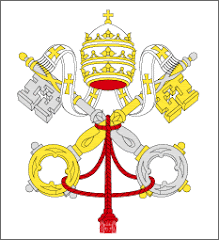
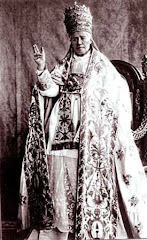
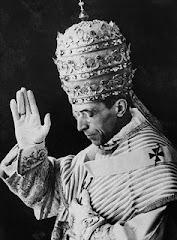

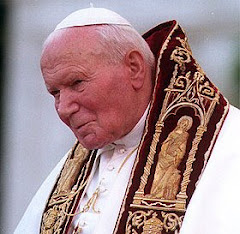
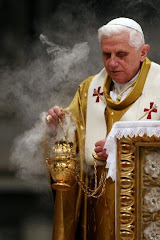













2 comments:
Mr. Reed,
You have a very good blog. Your posts are intelligent and well-written.
I hope that you don't mind, but I will have to start linking to you; especially since you're a Louisiana Catholic blogger, too.
May God bless your work.
Nicholas Jagneaux
Ville Platte Catholic Youth Group
www.vpcyg.com
P.S. - If you're not familiar with the Opionated Catholic blog, it's a blog from North Louisiana that highlights all the Catholic bloggers in the state. James, who runs the blog, even does a Daily Round-Up, linking to all the posts that we make.
Mr. Jagneaux,
I'm happy to tell you that I grew up in Ville Platte and graduated from Sacred Heart. I know you're very involved there, so I thank you for all of your efforts.
Post a Comment